
Islām | Ahl Sunnā | Philosophy | Theology | Sufism (Akbarian mashrāb) | Platonism | History | Politics
2 subscribers
How to get URL link on X (Twitter) App

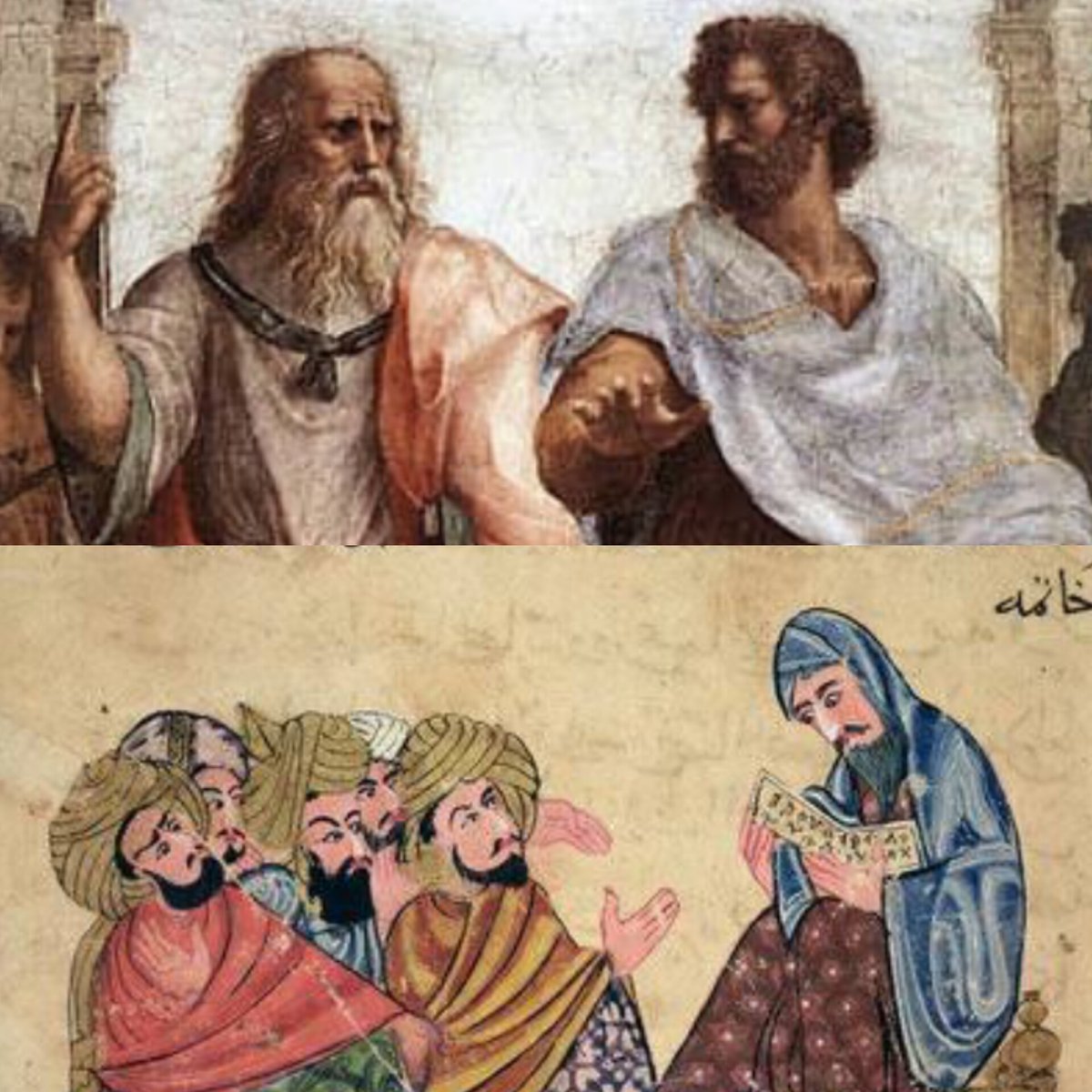
 in general, can rationally account rigorously not just for the principial ontological (in terms of Being) dependence of the contingents and concepts on God, but also their principial axiological and epistemological dependence, with their very reality and structural formation.
in general, can rationally account rigorously not just for the principial ontological (in terms of Being) dependence of the contingents and concepts on God, but also their principial axiological and epistemological dependence, with their very reality and structural formation.
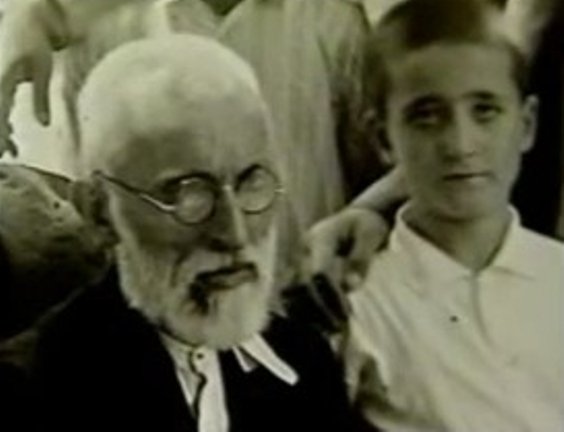
 we must at least destroy our afterworld.” I can only say I am not one of those people who deny the material and moral decline of the Muslims, and I do not want to prevent their awakening nor the methods of reform that could improve the situation of the Muslim world. But if the
we must at least destroy our afterworld.” I can only say I am not one of those people who deny the material and moral decline of the Muslims, and I do not want to prevent their awakening nor the methods of reform that could improve the situation of the Muslim world. But if the
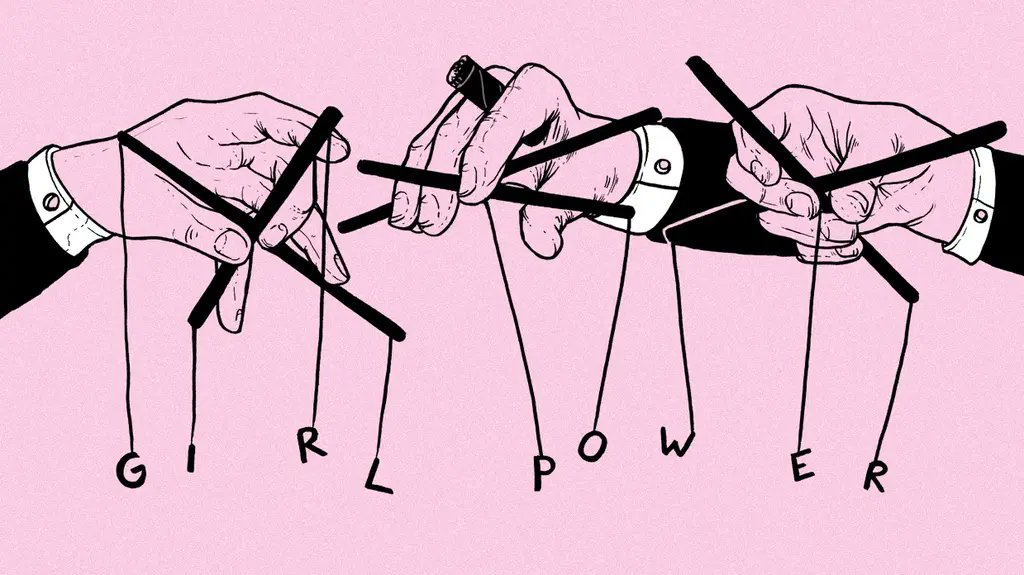
 only. If a person is not generating capital by putting his or her knowledge and skill to use, in the market, he is principally not even worthy of being a human as per the liberal thinker’s definition of human rights and possession—they were the ones who created the human rights
only. If a person is not generating capital by putting his or her knowledge and skill to use, in the market, he is principally not even worthy of being a human as per the liberal thinker’s definition of human rights and possession—they were the ones who created the human rights
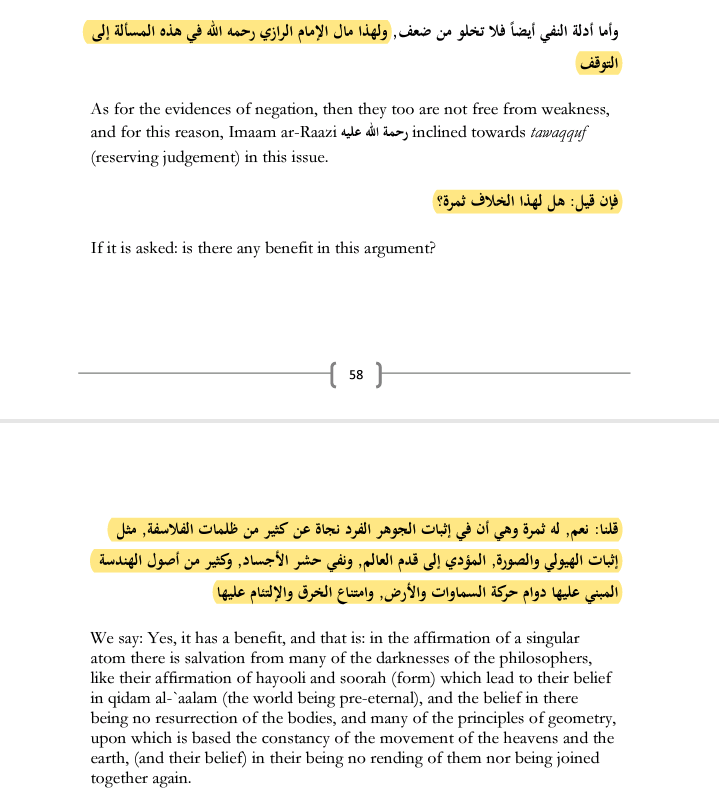
 the rationally sound position between both for this reason, but followes up with the fact that despite the rational weakness of Atomism, it is still preferred and Hylomorphism is critiqued, by the mutakallimin because it helps or benefits in defending the Sunni creed.
the rationally sound position between both for this reason, but followes up with the fact that despite the rational weakness of Atomism, it is still preferred and Hylomorphism is critiqued, by the mutakallimin because it helps or benefits in defending the Sunni creed.

 who object that it was not preached and believed in by the Prophet ﷺ and sahāba.
who object that it was not preached and believed in by the Prophet ﷺ and sahāba.

 Then the question arises, is this belief true in Reality? Surely, Muslims believe that it is, otherwise they would not be Muslims in the first place.
Then the question arises, is this belief true in Reality? Surely, Muslims believe that it is, otherwise they would not be Muslims in the first place.

 nothingness so that it can have being, so there must be a prior unified multiplicity—a principle of unity in relation to the posterior—which qualifies a multiplicity with oneness thus giving it being, and since the infinite regress is impossible, there must be an Absolute Unity
nothingness so that it can have being, so there must be a prior unified multiplicity—a principle of unity in relation to the posterior—which qualifies a multiplicity with oneness thus giving it being, and since the infinite regress is impossible, there must be an Absolute Unity
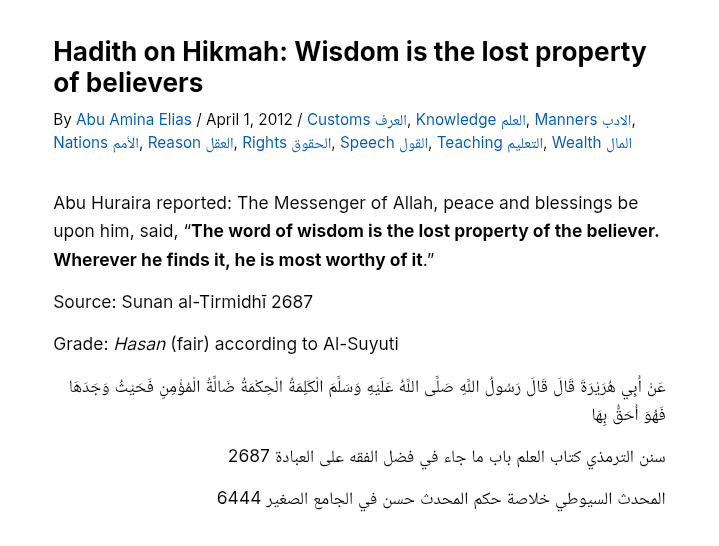
 Whenever these kinds of Muslims see a traditional or orthodox Sunni who is a student or scholar of Islamic rational and mystical sciences, admiring or affirming a wisdom or knowledge from a pagan or hindu or christian or atheist or any non-Muslim, or they see commensurability
Whenever these kinds of Muslims see a traditional or orthodox Sunni who is a student or scholar of Islamic rational and mystical sciences, admiring or affirming a wisdom or knowledge from a pagan or hindu or christian or atheist or any non-Muslim, or they see commensurability

 philosophy to the next level, exploring and explaining the deeper dimensions of Tawhid in the Qur’ān and ahādith and the Islam creed in general.
philosophy to the next level, exploring and explaining the deeper dimensions of Tawhid in the Qur’ān and ahādith and the Islam creed in general.

 The neo-kalām people today who equate kalām with metaphysics and use it in matters of pure tahqiqi metaphysics, not only are not on traditional understanding of the sciences because they don’t understand and employ the principle of demarcation in sciences but also don’t know
The neo-kalām people today who equate kalām with metaphysics and use it in matters of pure tahqiqi metaphysics, not only are not on traditional understanding of the sciences because they don’t understand and employ the principle of demarcation in sciences but also don’t know

 You often find them treating morals and ethics as more important than faith (imān) in God and his Prophets especially excluding the latter from having any basis or effect on our spiritual and moral condition.
You often find them treating morals and ethics as more important than faith (imān) in God and his Prophets especially excluding the latter from having any basis or effect on our spiritual and moral condition.

 that Kant alleges, and that constitutes ‘the primary source of the pure concepts of the understanding and of first principles’, as opposed to a ‘still-continuing’ intuition? The depiction of the source of our knowledge of first principles and ‘the pure concepts of the
that Kant alleges, and that constitutes ‘the primary source of the pure concepts of the understanding and of first principles’, as opposed to a ‘still-continuing’ intuition? The depiction of the source of our knowledge of first principles and ‘the pure concepts of the

 traditions are equally arbitrary choices of people, relative and absurd, and only liberalism is the way. You are tolerated in a liberal State, as long as you just believe in your heart and tongue that your religion is objectively true [common foolish idea of religion is personal]
traditions are equally arbitrary choices of people, relative and absurd, and only liberalism is the way. You are tolerated in a liberal State, as long as you just believe in your heart and tongue that your religion is objectively true [common foolish idea of religion is personal]
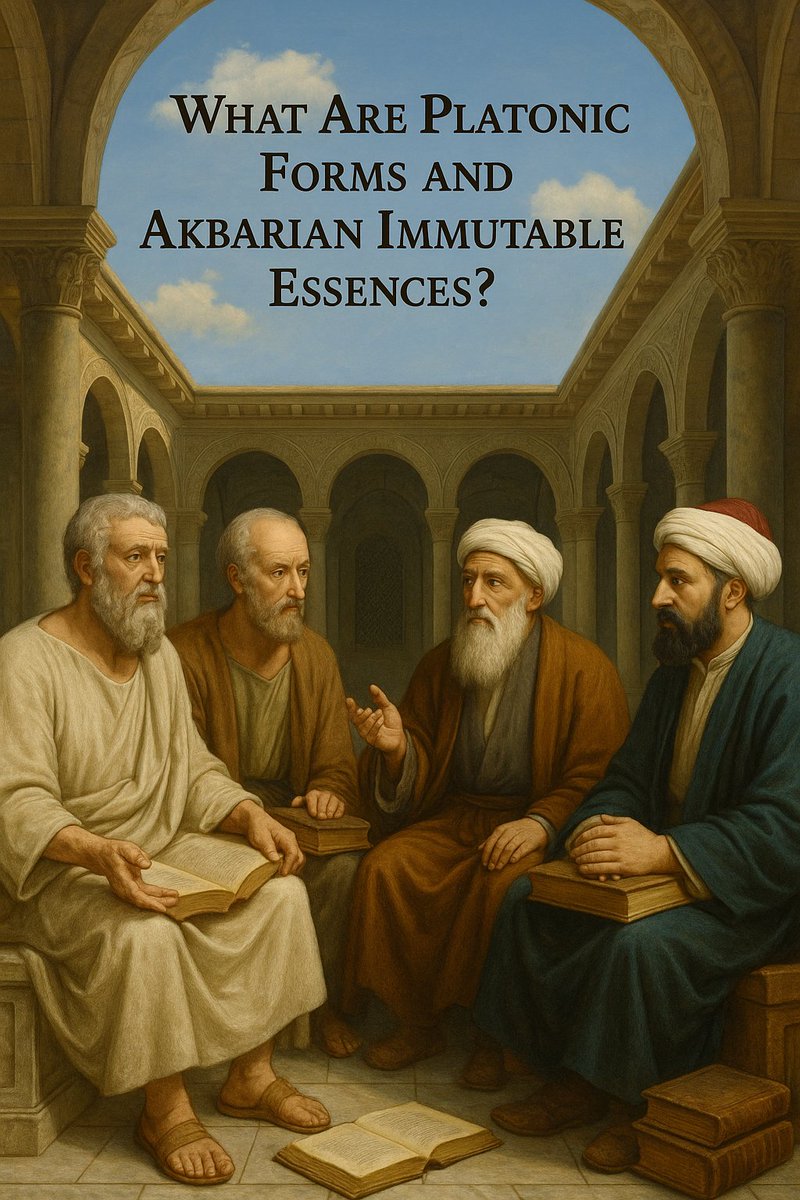
 mistake that is the result of understanding and deriving forms or essences from the particulars. Once they present such a big strawman, the immanentists foolishly comes with the critique that since one transcendent-world universal form is shared by multiple different things in
mistake that is the result of understanding and deriving forms or essences from the particulars. Once they present such a big strawman, the immanentists foolishly comes with the critique that since one transcendent-world universal form is shared by multiple different things in

 things like normative experience, brute facts, different sorts of appeal to authority fallacies like human language standard etc. No wonder I find many modern Asha’ris interested in and utilizing modern analytic philosophy like Salafis, for it’s useless semantical jargon that has
things like normative experience, brute facts, different sorts of appeal to authority fallacies like human language standard etc. No wonder I find many modern Asha’ris interested in and utilizing modern analytic philosophy like Salafis, for it’s useless semantical jargon that has
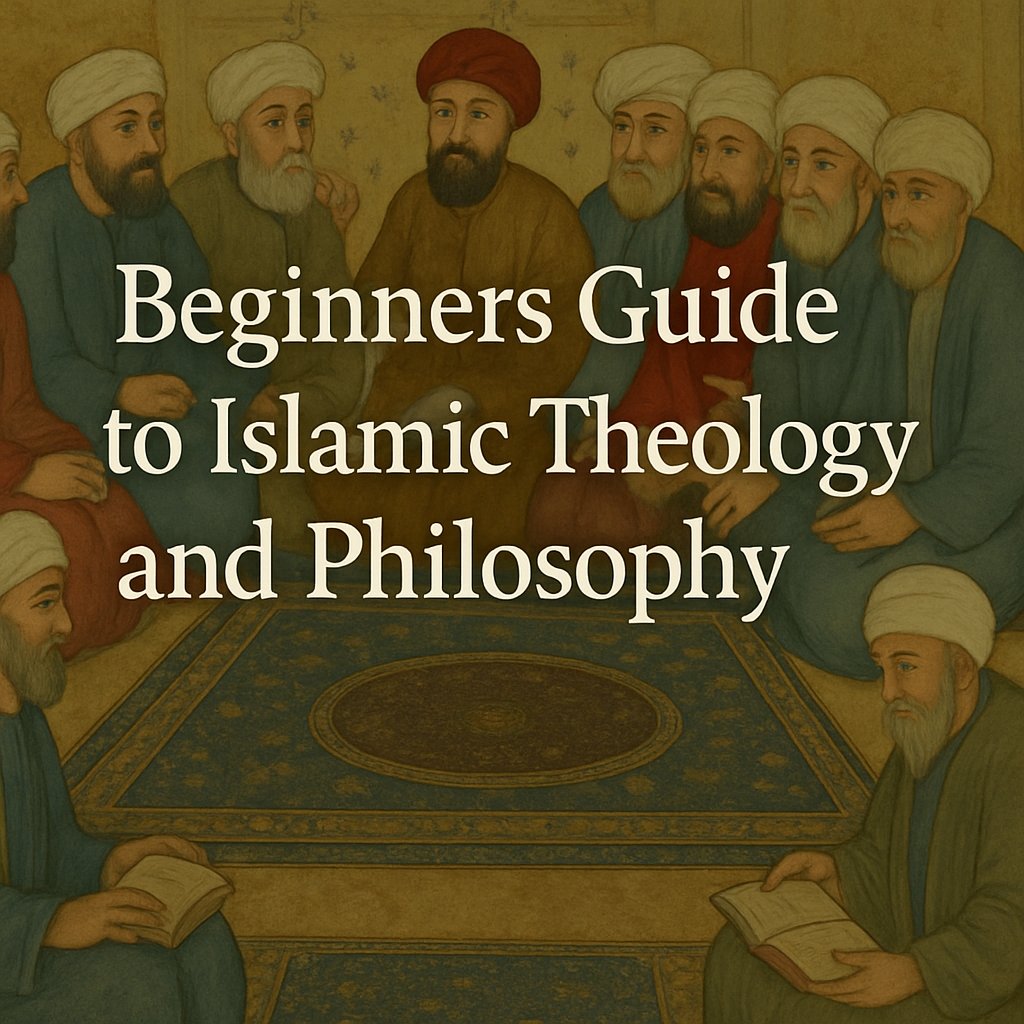
 starting with initiation into Islāmic theology and philosophy and gradual progress to a higher level.
starting with initiation into Islāmic theology and philosophy and gradual progress to a higher level.

 denying but trying to reframe it to the point where people will actually give up on that history. That’s what the purpose is of the [orientalist] Qur’ānic studies within the west, that’s what the purpose is of the [orientalist] hadith studies in the west, that’s what the purpose
denying but trying to reframe it to the point where people will actually give up on that history. That’s what the purpose is of the [orientalist] Qur’ānic studies within the west, that’s what the purpose is of the [orientalist] hadith studies in the west, that’s what the purpose
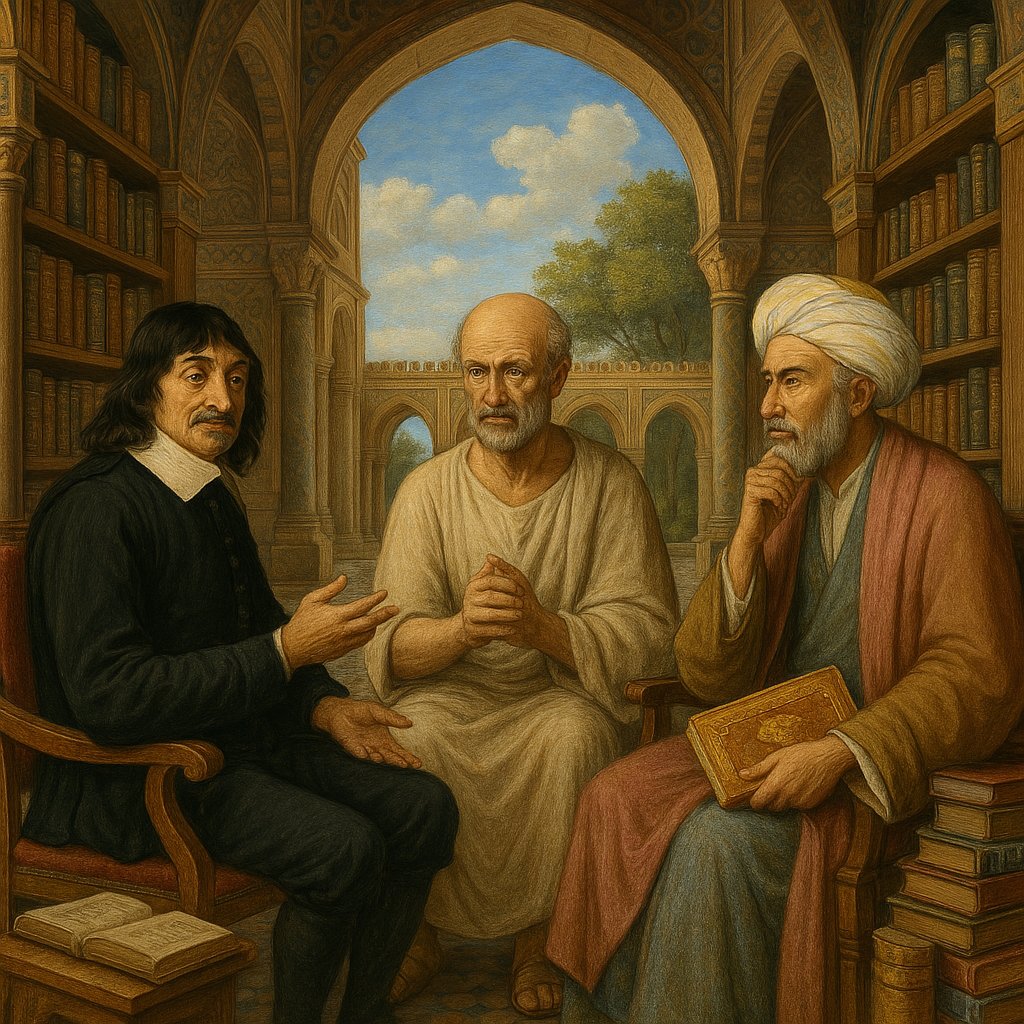
 means to have an individual existence that cannot be doubted because doubt itself presumes self-awareness. If we do some reflection, we realize that it is indeed the case that if we didn’t have an individual conscious perspective different from the others, we wouldn’t be able to
means to have an individual existence that cannot be doubted because doubt itself presumes self-awareness. If we do some reflection, we realize that it is indeed the case that if we didn’t have an individual conscious perspective different from the others, we wouldn’t be able to


 involve existence, sustenance and providence which pertain to few out of the infinite Divine names and attributes, Wujūdi metaphysics takes things to the next level by considering all the Divine names and attributes and purport the idea that not just the existence, sustenance and
involve existence, sustenance and providence which pertain to few out of the infinite Divine names and attributes, Wujūdi metaphysics takes things to the next level by considering all the Divine names and attributes and purport the idea that not just the existence, sustenance and

 There was so much to learn from him about the history, approach, understanding and differences in the Philosophy of modern science. Putting it all here is nearly impossible, so I just wanted to share some important insights about his lecture, which concern us all as Muslims.
There was so much to learn from him about the history, approach, understanding and differences in the Philosophy of modern science. Putting it all here is nearly impossible, so I just wanted to share some important insights about his lecture, which concern us all as Muslims.